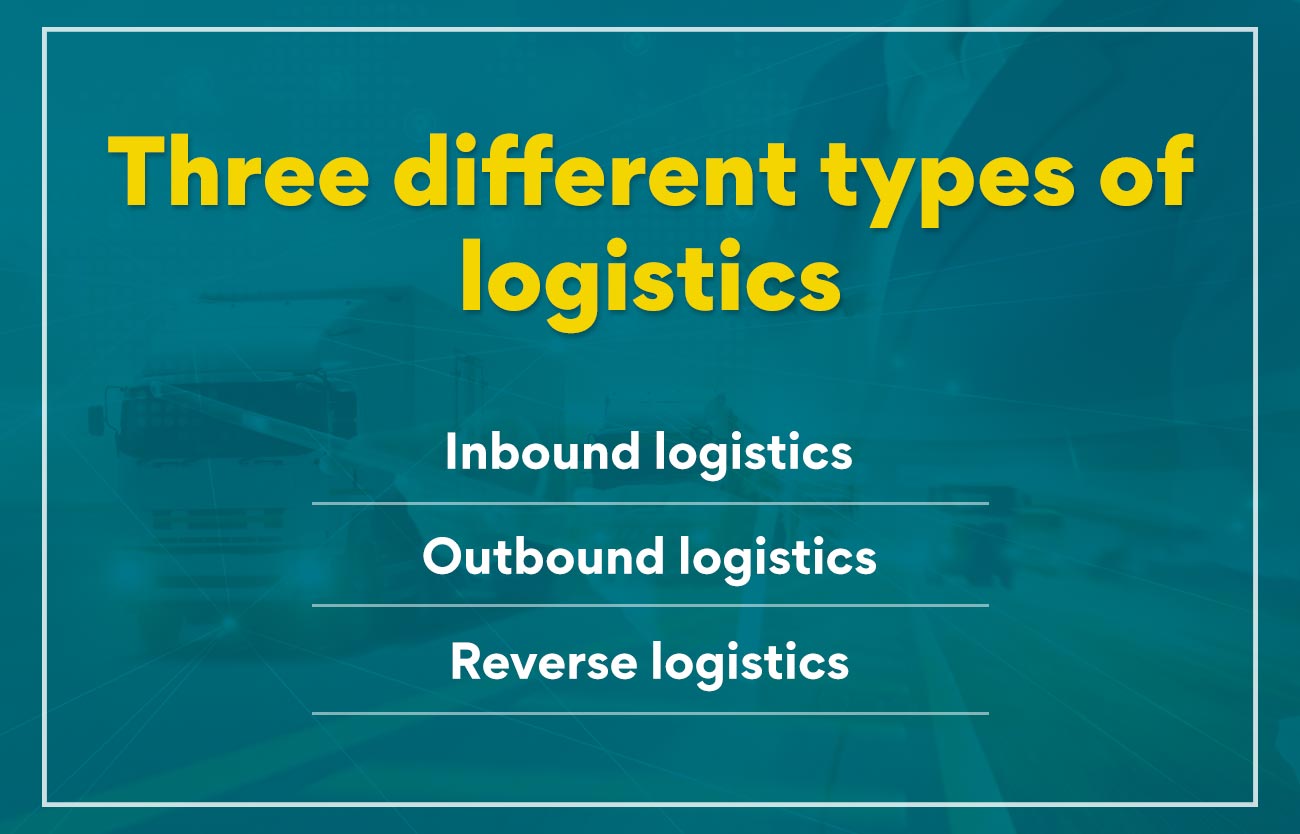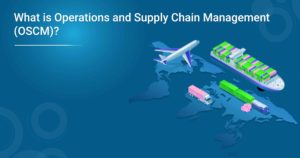It’s a matter of great confusion between the terms “logistics” and “supply chain management.” A lot of people use them interchangeably, but they are actually entirely different concepts. For those planning to apply for a supply chain career in the business world, it is essential to understand the difference between logistics and supply chain management. In this blog post, we will explore the differences between these two terms and how they are significant for one another.
Is Supply Chain Management And Logistics the Same?
Even being related concepts, there are significant differences between the two.
Logistics is a part of supply chain management that deals with transporting, storing, and delivering goods. In other words, logistics is responsible for getting the right product to the right customer at the right time.
Supply chain management is a broader term that encompasses all tasks involved in the transit of goods and services from manufacturing to consumption. From the process of sourcing and procurement of goods to its manufacturing and distribution, it includes everything.
Understanding the primary difference between logistics and supply chain management is vital to ensure that your business is running smoothly and efficiently. With this understanding, you can develop specific strategies for each area and ensure that your entire operation runs like a well-oiled machine.
What Is Supply Chain Management? An Overview With Examples
Supply chain management (SCM) is defined as the process of planning, executing, and controlling operations that bring goods and services from suppliers to customers.
SCM includes managing the movement of materials, information, and finances as they flow between points in the supply chain. SCM aims to ensure that goods and services are delivered on time and at the correct location while minimising cost.
A supply chain can seem simple or complex, depending on the number of suppliers and the steps for delivering the product to the customer. For example, a brand manufacturing and selling products directly to customers have a simple supply chain.
On the other hand, a company that sources materials from suppliers, transforms them into finished products, and then sells those products to customers has a more complex supply chain.
Companies can use different supply chain management strategies to improve their operations. Some common SCM strategies include just-in-time (JIT) manufacturing, lean manufacturing, and agile manufacturing.
In addition to these strategies, there is an abundance of software applications that can be used to manage the supply chain more effectively. Some of these applications include enterprise resource planning (ERP) systems, supply chain management software (SCM), and transportation management systems (TMS).
Also Read: Major Decision Areas In Supply Chain Management
Benefits of Supply Chain Management
There are many benefits to implementing an effective supply chain management strategy. Some of the most important benefits include:
Reduced Costs: One of the essential benefits of supply chain management is that it can help reduce the overall costs with respect to running a business. This is because SCM can help to streamline operations and improve efficiencies.
Improved customer satisfaction: Another vital benefit of supply chain management is that it can lead to improved customer satisfaction. The processes of SCM are designed to ensure that products are delivered on time and at the correct location.
Increased efficiency: Efficiency is the key to any business’s success, irrespective of its business model. Supply chain management can marginally increase efficiency by automating the entire process, eliminating waste, and reducing the time needed to complete tasks.
Improved competitiveness: When it comes to competitiveness, every business strives to stay ahead of the curve. Efficient supply chain management enhances a company’s competitiveness, augmenting the quality of products, cutting-edge sales, and timely delivery.
As you can see, many benefits can be enjoyed from implementing an effective supply chain management strategy. If you want to discover more about supply chain management and how you can emerge as an intelligent supply chain manager, go through our Advanced Certificate in Operations, Supply Chain, and Project Management.
What Is Logistics? An Overview With Examples
Right from planning, executing, and controlling the storage and transportation of goods is deemed as logistics. The main goal of logistics is to ensure that goods are delivered to the customers at the right time.

There are three different types of logistics:
Inbound logistics: Inbound logistics is receiving and storing goods. It is all about managing the flow of incoming materials. With inbound logistics, supply chain managers can control the movement of goods into the organisation.
Outbound logistics: Outbound logistics involves shipping goods to customers. It is all about managing the flow of outgoing materials. It enables supply chain managers to control the movement of goods out of the organisation.
Reverse logistics: Reverse logistics is returning goods to suppliers. It is all about managing the flow of outgoing materials. With reverse logistics, supply chain managers can control the movement of goods back into the organisation.
To effectively manage logistics, supply chain managers need to have a good understanding of the different types of logistics and how they work. Indeed logistics is a complex process, but with a little bit of knowledge, it can be managed effectively to relish optimum results.
Benefits of Logistics
There are many benefits of logistics. These are the most important benefits:
Better Flow of Operations: Logistics helps to ensure a smooth and efficient flow of operations. It optimises the use of resources and minimises waste.
Improved Customer Service: Logistics improve customer service by ensuring that the correct goods are delivered to the right place at the right time.
Shipment Management: Logistics helps to manage shipments effectively. It helps to track shipments and ensure that they are delivered on time.
Scalability: Logistics effectively scale the business. It helps to manage growth and ensure that the company can meet the demands of its customers. With logistics management, supply managers can calculate the expansion cost and effectively manage the development of the business.
Warehouse Management: Monitoring and storing the goods effectively is one of the benefits of logistics. It helps reduce inventory costs and ensure that the goods are stored in a safe and secure environment.

Difference Between Logistics and Supply Chain Management
Although they are related concepts, there are many differences between them, and it is essential to understand the intricate variance between them. To put it simply, logistics is a part of supply chain management. Supply chain management is all about the coordination and management of all the activities within a company to get a product or service from the initial stages of development to the customer. Logistics is the management of taking the product from supplier to customer.
While logistics is just one aspect of supply chain management, it is a significant one. After all, if a company cannot get its product to the customer, then the whole supply chain tumbles down. That’s why logistics is critical to any successful supply chain management strategy.
Also Read: Know Essential Components Of Supply Chain Management
Key Differences Between Logistics and Supply Chain Management:
- Logistics is the fragment of supply chain management that focuses on transportation and storage.
- Supply chain management is the management and coordination of all activities within a company that is necessary to get a product or service from the initial stages of development all the way to the customer.
- SCM prioritises creating strategies to streamline the flow of goods and services, while logistics focuses on enhancing customer satisfaction by fulfilling those strategies.
- Good supply chain management can’t exist without efficient logistics, but the reverse is not true.
- The supply chain management practice began in the 1980s, while the term “logistics” has been around since military times.
Logistics and supply chain management is essential to any business that wants to be successful. The supply chain would likely fall apart without either of these two pieces. So if you’re looking to optimise your company’s supply chain, consider logistics and supply chain management.
Similarities Between Logistics and Supply Chain Management
There are many similarities between logistics and supply chain management, as they both deal with the coordination of resources in order to achieve specific goals. For example, logistics and supply chain management involve planning and executing transportation routes, coordinating resources such as raw materials and finished goods, and managing information flow.
Another similarity is that both work towards attaining the same goal of the company, i.e., ensuring customer satisfaction. Logistics and SCM share the common goal of ensuring that products are delivered to the customers without any hassle.
Setting the goods apart from the competition is also one of the similarities both share. For a company to be successful, its interests must be of better quality, arrive faster, and/or be cheaper than the competition. This is why both logistics and supply chain management focus on finding ways to improve transportation times, reduce inventory levels and find cost-effective suppliers.
What Is The Role of Logistics In Supply Chain Management?
Logistics is the process of planning, implementing, and controlling the efficient, adequate flow of goods, services, and related information to satisfy customers’ requirements.
Supply chain management (SCM) is a cross-functional approach to managing the movement of raw materials into an organisation and the movement of finished products out of the organisation toward the end customer.
In a nutshell, logistics is a process within SCM, but there is a difference. Logistics refers to the transportation, warehousing, and coordination of goods, whereas SCM encompasses these activities, plus much more. Logistics take care of the “how” goods are moved, stored, and delivered. SCM is responsible for the entire process from start to finish. Good SCM can only be ensured with efficient logistics.
There are numerous benefits of having an efficient logistics system, some of which include:
- Increased customer satisfaction
- Reduced inventory levels
- Reduced transportation and warehousing costs
- Reduced lead times
- Increased production flexibility
Why are logistics necessary for supply chain management?
In simple terms, logistics manages the flow of goods and resources between point A and point B. On the other hand, the supply chain is a network of facilities and processes required to take the product from the manufacturing to the consumption stage.
While logistics deals with transporting and storing goods, supply chain management encompasses a broader range of activities, including sourcing raw materials, manufacturing, and distribution. Supply chain management is related to the entire journey of a product or service, from when it is conceived to when it reaches the customer.
An efficient logistics operation is crucial for supply chain management, as it ensures that goods and resources are moved quickly and efficiently between different points in the supply chain. On the other hand, a well-managed supply chain can help businesses improve their overall efficiency and competitiveness.
While there is a clear distinction between logistics and supply chain management, it is essential to note that they are interdependent. A successful SCM operation is impossible without efficient logistics and vice versa. Therefore, businesses need to ensure that they have both a well-managed logistics operation and a sound supply chain management strategy in place in order to be successful.
The Bottom Line
The main difference between logistics and supply chain management is that logistics focuses on the movement of goods, whereas supply chain management encompasses the entire process, from procurement to delivery. Logistics is a subset of supply chain management.
While both are important to businesses, they approach operations differently. Logistics managers typically handle the transportation, warehousing, and customer service, while supply chain managers oversee the entire process and develop strategies to streamline operations and reduce costs.
An efficient logistics system is critical to businesses because it ensures that goods are delivered on time and in good condition. On the other hand, a well-run supply chain can be a competitive advantage, giving companies the ability to change customer demand and deliver goods faster and at a lower cost.
Whether you want to understand the difference between logistics and supply chain management or explore different aspects of managing a project, our Advanced Certificate in Operations, Supply Chain, and Project Management will help you dive into the details and get the most out of the subject matter. Please take a look at our certificate course to know more.
More Information:
Green Supply Chain Management: What It Is and Why It Matters?





























